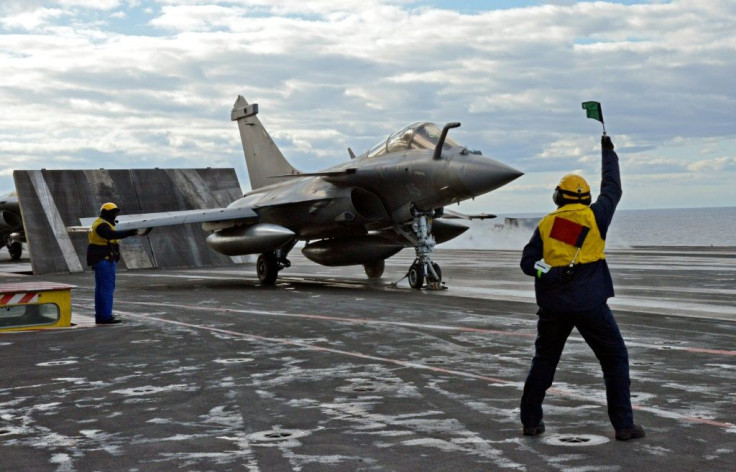France Pulls Out Of NATO Med Operation Over Turkey Tensions

France said Wednesday it was suspending its participation in a NATO Mediterranean maritime security operation owing to the behaviour of Turkey, in a new escalation of a growing dispute between the two alliance allies.
Paris and Ankara have exchanged bitter barbs over the last days concerning the conflict in Libya, with both sides accusing each other of stoking bloodshed in the North African country.
The defence ministry said France would no longer take part in the NATO operation until it gets a response to its concerns over the behaviour of Turkey.
"We have decided to temporarily withdraw our assets from the operation Sea Guardian" until France's concerns are addressed, a French defence official, who asked not to be named, told reporters.
Earlier this month, France denounced an "extremely aggressive" intervention by Turkish ships against a French navy vessel participating in the NATO mission in the Mediterranean, a claim Ankara dismissed as "groundless".
Ankara supports the UN-recognised Government of National Accord (GNA) in the Libya conflict against rebel strongman Khalifa Haftar.
France is suspected by analysts of backing Haftar alongside Egypt, Russia and the United Arab Emirates, but insists it is neutral in the conflict.
In the latest war of words this week, French President Emmanuel Macron accused Turkey of "criminal responsibility" in Libya while Ankara slammed France's "destructive" approach.
"Turkey's aspirations to increase its footprint in the Mediterranean triggered geopolitical competition with France," Ozgur Unluhisarcikli, director of German Marshall Fund of the United States' Ankara office told AFP.
"If not contained through efforts of third countries within NATO, this situation could evolve into geopolitical rivalry between the two allies," he added.
Paris accuses Ankara of shipping arms to Libya in defiance of a UN embargo as well sending in thousands of pro-Turkey Syrian militia fighters fresh from the conflict there.
"It does not seem to us healthy to maintain our assets in an operation supposed, among its various tasks, to control an embargo alongside allies who do not respect it", said the French defence official.
Paris demands in particular "that allies solemnly reaffirm their attachment and their commitment to the respect of the embargo" on weapons to Libya.
According to NATO, the Sea Guardian operation was launched in November 2016, aimed at "carrying out maritime security capacity building, and providing support to maritime situational awareness and to maritime counter-terrorism".
Macron said last week that he believed the naval incident between France and Turkey was worrying proof of his belief that NATO is in the throes of "brain death".
His concern about NATO also comes at a time when Paris is pushing for a rapprochement with Russia. Macron held lengthy video talks with President Vladimir Putin last week.
But speaking to the foreign affairs committee of the French senate, Turkish ambassador to Paris Ismail Hakki Musa insisted: "There can be no NATO without Turkey."
Crises such as those in Iraq and Syria would be impossible to handle without Turkey, he said.
Turkey, along with its traditional foe Greece, joined NATO back in 1952, as the United States worked hard to ensure Ankara did not move close to the orbit of the USSR after World War II.
"President Macron's problems with NATO are not limited to Turkey, but Turkey serves as a good talking point for him given the unpopularity of President Recep Tayyp Erdogan in the West," said Unluhisarcikli.
In a sign of the tensions, Turkish reports said earlier this month Turkey had arrested four of its own nationals on suspicion of spying for France on conservative and religious groups.
Musa, in his comments, confirmed the existence of such a case and said it was being followed by both the French and Turkish intelligence services.
© Copyright AFP {{Year}}. All rights reserved.




















